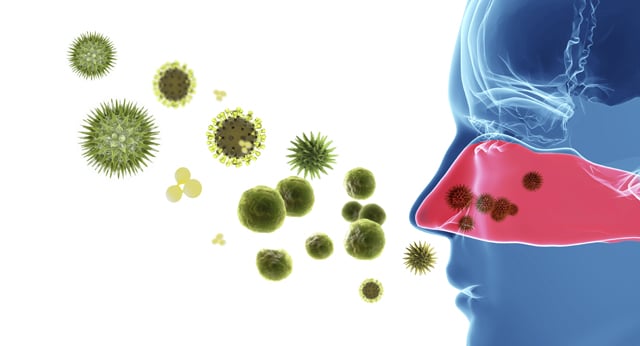What causes an allergy?

Allergic reactions can be caused by all sorts of triggers including:
Chemicals including domestic cleaning products.
Fragranced cosmetics and toiletries especially bubble baths and soaps.
Certain foods, including dairy products, nuts and shellfish.
Latex (people with a latex allergy can also develop allergies to fruits like avocado, banana and kiwi).
Insect bites and venom, such as bee and wasp stings.
Certain medicines including penicillin-type antibiotic.
Currently in the UK the number of people suffering from allergies is rising 5% each year. Find out why allergies are on the rise here.
How do allergies work?

If you begin experiencing hay fever, food or other allergies for the first time, it’s important to see a doctor before taking further action. As well as providing a diagnosis, a doctor can advise on suitable treatment options.
There are four key components required for the allergic reaction to happen:
Allergen – substance causing the allergy.
Immunoglobulin E – an antibody produced in response to the allergen.
Mast Cells – special cells, found in skin and moist linings (nose, eye, mouth) packed with histamine granules. The antibody attaches itself to these cells.
Histamine – is then released from the mast cells and causes small blood vessels (called capillaries) to widen (dilate). This causes many of the symptoms of allergy as these blood vessels then start to leak their contents into the body tissues causing inflammation of the nose, eyes or airways and results in itchy watery eyes, a runny nose, sneezing and nasal congestion.
Quick Fact: How the allergen enters the body can determine the symptoms, e.g. if the allergen enters via the nose sufferers are likely to sneeze.



